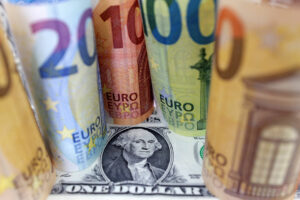
FDI net inflows fall to 10-month low in April
By Luisa Maria Jacinta C. Jocson, Reporter
THE PHILIPPINES’ foreign direct investment (FDI) net inflows slumped to a 10-month low in April, the Bangko Sentral ng Pilipinas (BSP) reported on Wednesday.
Preliminary data from the BSP showed that FDI net inflows fell by 36.9% to $556 million in April from $881 million in the same period a year ago.
This was the lowest level of monthly FDI inflows in 10 months or since $541 million in June 2023.
Month on month, net inflows dropped by 19% from $686 million in March.
Data from the central bank showed that nonresidents’ net investments in debt instruments declined by 38.8% to $407 million in April from $665 million in the same month a year ago.
Net investments in debt instruments consist mainly of intercompany borrowing or lending between foreign direct investors and their subsidiaries or affiliates in the Philippines, according to the BSP.
Net investments in equity capital other than reinvestment of earnings plunged by 48.1% to $68 million in April from $132 million a year ago.
Broken down, equity capital placements slid by 47% to $84 million while withdrawals dropped by 41.7% to $16 million.
Reinvestment of earnings decreased by 4.2% to $81 million in April from $84 million a year ago.
Investments in equity and investment fund shares dropped by 30.9% to $149 million in April from $216 million in the same month in 2023.
By source, investments in equity capital placements were mainly from Japan (47%), followed by the United States (21%), Malaysia (11%) and Singapore (9%).
These were invested mostly in the manufacturing (36%), real estate (26%), wholesale and retail trade (13%) and financial and insurance (10%) sectors.
IMPROVED CONFIDENCE
In the January-April period, FDI net inflows jumped by 18.7% to $3.525 billion from $2.971 billion in the same period a year earlier.
“This improvement reflects investor confidence in the Philippine economy’s resilience amid global uncertainties,” the BSP said.
Central bank data showed foreign investments in debt instruments slipped by 1.4% to $2.237 billion in the four-month period from $2.268 billion a year ago.
Investments in equity and investment fund shares surged by 83.2% to $1.288 billion in the January-to-April period from $703 million last year.
Net foreign investments in equity capital more than doubled to $978 million in the four-month period, as placements surged by 126.8% to $1.213 billion while withdrawals went up by 65.2% to $235 million.
Reinvestment of earnings dipped by 0.1% to $310 million in the four-month period.
At end-April, the Netherlands accounted for the majority (63%) of overall net FDI inflows. This was followed by Japan (22%) and the United States (6%).
These were mostly invested in financial and insurance (67%), manufacturing (18%), and the real estate (7%) industries.
“Global economic uncertainty, characterized by inflation, mixed policy rate messaging, and geopolitical tensions, dampened investor confidence,” Security Bank Corp. Chief Economist Robert Dan J. Roces said in a Viber message.
Rizal Commercial Banking Corp. Chief Economist Michael L. Ricafort said that net FDI inflows dropped in April “at the height of risk aversion largely brought about by the geopolitical risks in view of the unprecedented direct attacks between Iran and Israel.”
Mr. Roces said that FDIs have slowed to below pre-pandemic levels due to rising prices and high interest rates.
The Monetary Board has kept policy rates at an over 17-year high of 6.5% since October 2023. Headline inflation quickened to 3.8% in April from 3.7% in March. The central bank expects inflation to average 3.3% this year.
“Sector-specific performance, likely influenced by a slowdown in manufacturing or services, could also have contributed to the decline,” Mr. Roces added.
For the coming months, Mr. Ricafort said that FDI inflows may improve as the BSP is widely expected to cut rates.
BSP Governor Eli M. Remolona, Jr. has said the central bank is on track to begin policy easing by August with a possible 25-basis-point (bp) cut. He earlier said the BSP can reduce rates by a total of 50 bps this year.
The central bank last cut policy rates in November 2020 when the benchmark rate was slashed by 25 bps to a record-low 2%. At that time, the economy was struggling with the coronavirus disease 2019 (COVID-19) pandemic and the aftermath of typhoons.
“Improving the business environment, promoting key sectors, and strengthening diplomatic relations will be crucial for attracting more FDI and stimulating economic growth, especially with better economic metrics emerging, and the BSP signaling an August rate cut,” Mr. Roces added.
The BSP expects to end the year with $9.5 billion in FDI net inflows.
In 2023, FDI net inflows fell by 6.6% to $8.9 billion from $9.5 billion in 2022.



